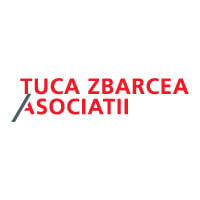

Legal manager | METKA



Ana-Maria Baciu
Legal manager | METKA
How do you approach managing legal aspects during periods of instability or crises, and how does your legal strategy align with the broader business strategy to ensure the organisation’s resilience?
Although it may seem rather cliché, no matter which department we belong to, in times of crisis and instability we need to keep calm and prioritise issues according to their importance and urgency to be able to deal with all the situations that need to be managed across the business. Otherwise, we may waste valuable time or miss details that could be crucial to the business.
Although the legal department itself is a support department of a company, designed to ensure that the business complies with legal requirements, the legal department is part of the heart of an organisation and it is needed from the very start of the company. I believe that it is totally flawed to think that the internal client should go to the legal department only when he has a problem or after he has conceived a whole business flow/plan, and I think that the right approach is to consult with the legal department from the very beginning of the business idea in order for the legal department to analyse and provide legal ways to achieve the objectives, as the contrary situation can lead to crisis.
The legal department must provide support to the organisation, and its strategy must be aligned with the business needs. By applying legal judgment as well as legal provisions to a given case, the legal department should not block the company’s ability to carry out its business but should be concerned with identifying legal ways for the company to achieve its business objectives. It would be hard to imagine a world in which no company would want to deviate from its own standard terms and would be unwilling to enter into any negotiations because it would be impossible to conclude any contract.
The legal department must also be a trusted partner to all internal clients and identify the risks to which the company might be exposed at any given time along with ways to eliminate or mitigate these risks.
Periods of crisis or instability may offer new perspectives but also new opportunities to the business world, and the beauty of the law stems from the fact that legal practitioners have to continuously adapt to the realities of the market.
Although, ideally, the law lasts for decades, the legal field is not a static one, and the beauty of the legal field lies in adapting some old regulations to the newness of the business environment through interpretation and reducing the complexity of business to the core idea.
In short, I believe that aligning legal strategy with business strategy can be summarised in a few words “We find solutions, not simply pinpoint problems.”
In your opinion, what are the main trends that are salient in your country currently ?
Most likely this response is different from person to person and depending on the environment in which that person lives. From my point of view the main trends that are salient in Romania currently are the unpredictability of tax legislation, to begin with. As a practitioner of business law and as an employee I cannot fail to notice how the lack of predictability in the tax area affects the business environment. In recent years, there have been numerous pieces of legislation, some of which were even adopted under an emergency procedure, which have led to changes in the tax code and, implicitly, in the taxes and duties payable by taxpayers or which have led to an increase in the costs of entrepreneurs, thus keeping Romania among the countries with the highest inflation in the European Union.
The lack of fiscal predictability has led to the exit or reduction of the activity of some companies operating on the Romanian market or to the unwillingness of international players to access the Romanian market. On a local level, for example, according to a press release from the National Trade Register Office, more than 40,000 companies were closed at national level in the first 5 months of 2024, almost 38% more than in the same period of 2023. The uncertainty of the costs involved in starting a business, in my view, discourages entrepreneurs from starting a business in Romania, and every fee that an entrepreneur will have to bear will be borne by the end consumer.
Secondly, concerning the presidential elections scheduled at the end of November, we are currently witnessing an electoral campaign in which candidates supported by various political parties, but also independent candidates want to occupy the post of President of Romania and promise us a plan for the next five years in which Romanian citizens will have a better life.
From a legal point of view, I consider that the culminating point in the whole pre-electoral process is the Romanian Constitutional Court’s ruling that a certain candidate cannot run in the presidential elections. Some legal experts have ruled that since there is no appeal against such a ruling, the Romanian Constitutional Court could be considered to have violated the right to a fair trial which requires informing the parties about the procedure and giving them the opportunity to defend themselves, as required by the ECHR in paragraphs 144-145 of the 2020 Kovesi v. Romania judgment, others have said that the Romanian Constitutional Court exceeded its powers, others have said that it is a legal ruling. Meanwhile, the rejected candidate has filed a criminal complaint for abuse of public office against the five judges who passed the ruling that eliminated her from the race for the Romanian presidency. From my point of view, the Romanian Constitutional Court’s ruling is an interesting decision and the legal action started by the rejected candidate is worth following.
Also, according to press reports, Romania ranks second in the European Union in terms of the oversized budgetary system. So out of a total of around 5.8 million employees, 1.3 million are state employees. The country also has 5.7 million pensioners, 0.25 million recipients of social assistance and 3.8 million children receiving allowances.
Taking into account the above figures, it is needless to say that investments in infrastructure are made mainly from external funds. As hospitals are old, with outdated equipment, and there were numerous fires during the COVID-19 pandemic, there are several private initiatives to raise funds for modernisation/building of hospitals. Although the state cannot boast of a similar achievement, one NGO managed to build a new pediatric hospital from private donations, and another NGO continuously manages to renovate sections of hospitals in Romania through private donations.
Lastly, time and again we have been able to give a law several meanings, with arguments for all interpretations. Also, law professors, academic experts and practitioners have different opinions on many legal issues. As judicial precedent is not a source of law in Romania, it is often the case that the judgments of the various courts are contradictory in similar cases. I am sad to admit that I have had two identical cases before the same court, but the composition of the court was different and the judgments were diametrically opposed, one action being fully admitted while the other was fully rejected.